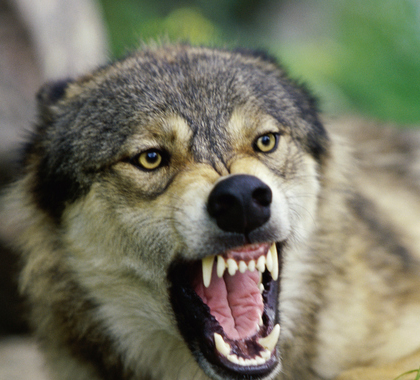A lawsuit filed by the Pacific Legal Foundation (PLF) on behalf of California farmers and ranchers alleges a state commission’s 2014 decision to list gray wolves as an endangered species is illegal.
The suit, filed in San Diego County Superior Court on January 31, says the listing was illegal because, among other things, the gray wolves at issue are a non-native species originally from Canada, not a subspecies originally native to California. Accordingly, the wolves that entered California are not protected under the 1970 California Endangered Species Act.
‘Bad Science, Bad Law’
Damien Schiff, principal attorney with PLF, said in a statement the listing is illegal.
“The gray wolf listing amounts to bad science, bad policy, and bad law,” Schiff said. “California bureaucrats managed to label the gray wolf as ‘endangered’ only by myopically and illegally ignoring its populations outside California. This deliberate undercounting is … flat-out illegal.”
Brian Seasholes, an independent scholar whose research focuses on endangered species, says wolves have huge territories.
“Wolves can wander enormous distances,” said Seasholes. “The pair of wolves spotted in California probably wandered from Idaho down to Oregon, and from there went into California. But now, they’re probably back in Oregon.
“There are no resident gray wolves in California,” Seasholes said.
Urban, Wealthy vs. Farmers, Ranchers
The California Farm Bureau Federation and the California Cattlemen’s Association oppose listing wolves as endangered because they are worried unchecked, expanding wolf populations will attack livestock.
“Gray wolves were already protected as a ‘non-game mammal,’ an arrangement that allowed flexible control,” Schiff said in the PLF statement. “In contrast, the ‘endangered’ listing makes it next to impossible for landowners to get permits even to physically remove a wolf that is threatening their animals. Even state officials would run into red tape if they were to try to capture or kill a wolf.”
Seasholes says the wolf listing is explained by geography and socioeconomics: If you live in an urban area, you think wolves and grizzly bears are great, but if you live in rural America and have to make your money off the land, you know the costs.
“For instance, if you’re wealthy, say you’re Ted Turner, and you have cattle on a 10,000-acre ranch out in the middle of Montana, you may think wolves and grizzly bears are great and you can afford to take a hit” if your livestock gets killed by wolves, Seasholes said.
Peripheral Concern
Wolves in the Yellowstone area and the Upper Midwest have large, healthy, expanding populations, Seasholes says.
“If you look at where they range across America, there are pockets in the lower 48, Canada, and Alaska, where wolves are doing really well,” Seasholes said.
“Designating transitory wolf populations in California as endangered does nothing to enhance the species’ survival and is not a good expenditure of limited conservation dollars,” said Seasholes. “There is stuff out there that is truly endangered and imperiled, but wolves are not one of those species.”
California’s Department of Fish and Wildlife has yet to file its response to the lawsuit and no hearing date has been set.
Kenneth Artz ([email protected]) writes from Dallas, Texas.





